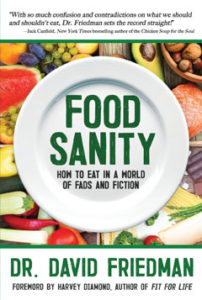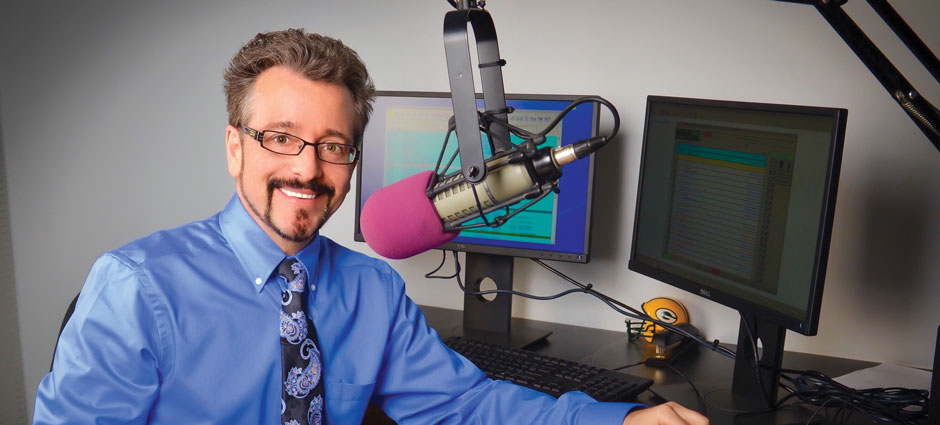
What inspired you to write this book?
I wrote Food Sanity after 18 years of frustration I endured as a syndicated TV and radio health expert. I’ve interviewed hundreds of scientists, doctors and authors, with the goal of sharing information that would help my audience reach their optimal health. Unfortunately, that’s not what happened. Instead, every guest would contradict the previous expert, leaving everyone—including me—more confused. While most health experts have differences of opinion, there is one thing they all agree on: Food has the power to heal the body or make it sick. The key is figuring out what should be at the end of our fork.
Please explain the “DIG” method in your book.
I use a common science meets common sense approach called DIG—Discovery, Instinct and God—to help you decipher what you should and shouldn’t be eating. It’s based on three categories—science (discovery), common sense (instinct) and blueprints of our creation (God).
Discovery is the science behind what you are reading or hearing from experts. Their conclusions or opinions change frequently, but if the science is based on unbiased research, it gives us a foundation and the most current objective viewpoints. Instinct helps you get in touch with, and give credence to, what your gut is telling you, so it can be your guide. For example, if the national news features a study showing more people buy ice scrapers in Florida than anywhere else in the country, would your instinct allow you to believe this? I will show you how to tap into that gut feeling rather than blindly trusting everything you hear. The G represents God, which is a way of saying we need to make sure the facts as we interpret them follow the blueprints of our creation. God could represent anything you believe in—a higher power, Mother Nature, an infinite spirit, and more. I use the word God when talking about how our bodies and minds are composed, and the nature or entity that formed them.
By taking the discoveries, adding your instincts and seeing if they correlate with the unique and complex design of the body God created, you have a blueprint to determine what you’re supposed to be eating.
You support following a plant-based diet. Why?
If you want to learn karate from the best teacher, find a 10th-degree black belt. If you want to grow old and be healthy, learn from those who have achieved this goal. I researched some of the healthiest and oldest people on the planet, men and women who thrive at 106, 116, even 125 years of age. The majority eat mostly plant-based foods—whole grains, fruits, vegetables, seeds, beans and nuts—with no exposure to processed foods, artificial preservatives and chemical additives commonly found in the standard American diet. Many of today’s popular diets, including ketogenic and paleo, advocate a diet high in animal foods, yet a plant–based diet has been linked to a lower risk of obesity and reduced risk to many chronic diseases, such as heart disease, type 2 diabetes and cancer.
What is one of your top tips on what we should and shouldn’t be eating?
Food makes up who you are and who you will become. It affects every aspect of your body. It’s important to give your body the right fuel. Unfortunately, we can’t rely on the latest fad diet or the ever-changing “eat this, not that” headlines. It really comes down to trusting your gut. Look at labels, and if you see chemicals you can’t pronounce, artificial dyes and flavorings, what does your gut tell you? Eating right can be confusing, but if you apply the current, unbiased common science with some good ol’ common sense, you can figure out what you should be eating.
Dr. Friedman hosts the syndicated program “To Your Good Health Radio.” For more info, go to drdavidfriedman.com.

